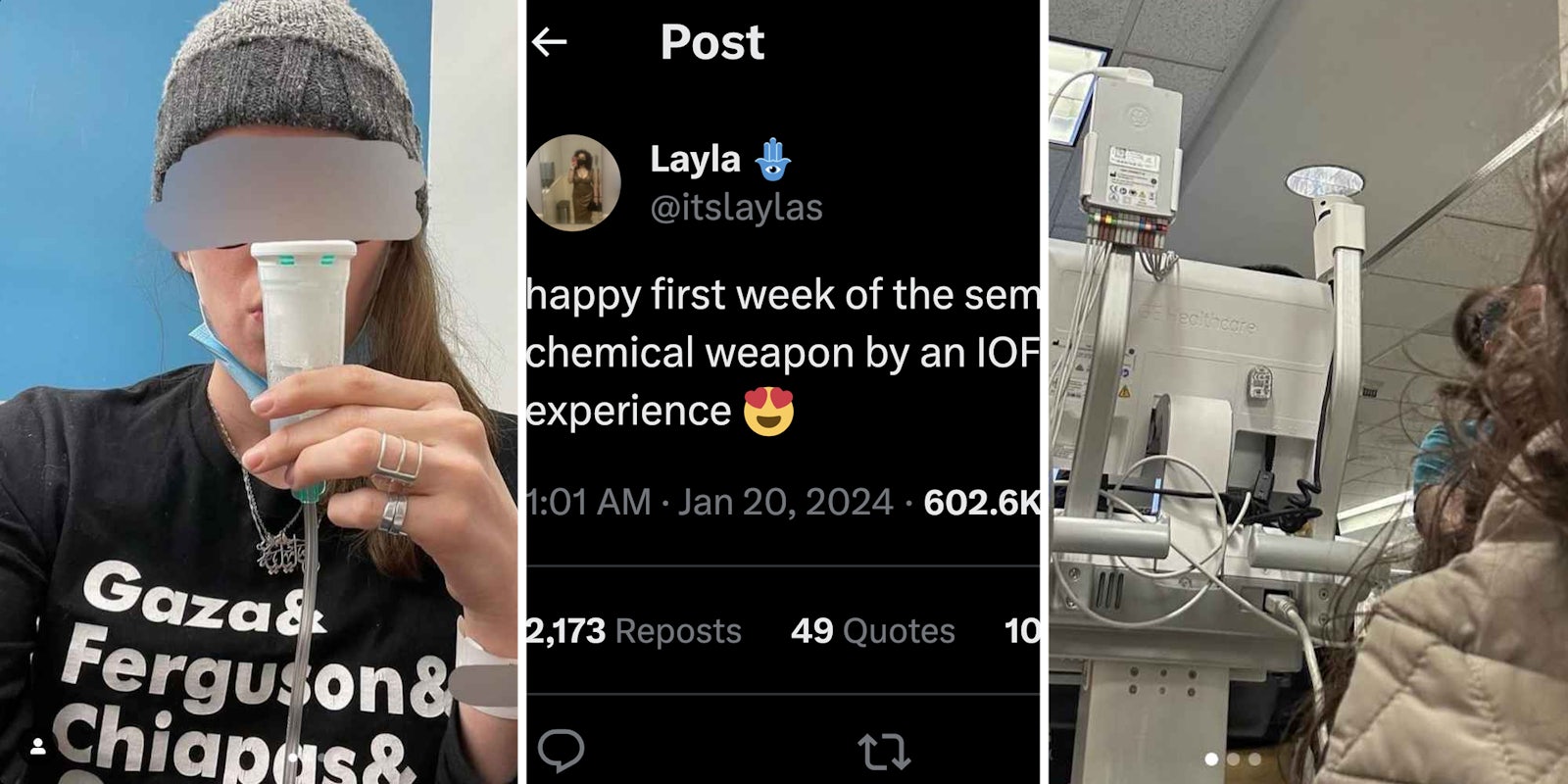In a concerning incident at Columbia University, a Palestinian-American graduate student, Layla (@itslaylas), narrated her experience of being sprayed with a chemical weapon on campus, attracting significant attention on social media. Her initial tweet, with over 600,000 views, succinctly captures the essence of her ordeal: “happy first week of the semester, we have: getting sprayed with a chemical weapon by an IOF soldier on campus!!! love my Ivy League experience.”
Her claims of the attack coming from an “IOF soldier” are vague. IOF is a pejorative term referring to “Israel Offensive Forces” or “Israel Occupation Forces,” which typically refer to Israel Defense Forces in Palestine, according to Wikipedia
The incident took place during a rally to support Palestine on campus, with “three men wearing fake keffiyehs were spraying skunk spray at students.” She notes that, “skunk spray is used by the IOF on Palestinians.” There is a 2021 report of Israeli forces using skunk waters as a “crowd control weapon,” and there is reported use on Palestinians from as far back at 2008.
The chemical weapon—made by water, baking soda, and yeast—is known for its horrendous odor and debilitating side effects like nausea and skin rash. This incident at Columbia, involving such a potent chemical, raises serious concerns about campus safety and the measures taken to ensure it.
Layla, a student at Columbia University’s School of Social Work, details the prolonged effects of the incident in a series of tweets. She describes enduring eye irritation, headaches, and an enduring smell of “skunk water,” a chemical notoriously hard to rinse off. “48 hours since I was sprayed: have washed my hair over 9 times… Still nauseous, fatigued, and my endometriosis symptoms are awful,” she tweets, illustrating the physical toll of the encounter.
Layla mentions in another tweet that many Jewish students, particularly those in CU Jews for Ceasefire, were directly targeted, some hospitalized. This statement underlines the severity of the attack and its impact on the student body.
ABC News reported several protesters from Students for Justice in Palestine and Jewish Voice for Peace were involved in the incident. The university’s Public Safety Department is actively working with local and federal authorities, including the NYPD, to investigate the matter thoroughly. The groups had previously faced suspension for violating university policies, igniting widespread discussion and controversy.
The Columbia Spectator‘s coverage provides further insight. The Spectator gathered testimonials from students at the protest, revealing a consensus about the foul smell and physical symptoms experienced. Public Safety has confirmed its ongoing investigation in partnership with the NYPD. The Spectator also reported students’ fears about campus safety, underscoring the gravity of such incidents in educational institutions.
Layla’s experience, echoed by her peers, speaks to a broader issue of safety and conduct on university campuses. As she and others navigate the aftermath of this disturbing event, it highlights the need for stringent security measures and prompt, transparent responses from university authorities in such situations. The incident at Columbia University serves as a stark reminder of the challenges facing educational institutions in maintaining a safe and conducive environment for all students.
The Daily Dot has reached out to Layla and the university for comment.



